The Gut-Immune Connection: Your Body's First Line of Defense
Healthy gut bacteria are essential microorganisms that form the foundation of your overall wellness. They play a critical role in digestion, nutrient absorption, immune function, and even mental health.
Key facts about healthy gut bacteria:
- Your gut houses approximately 100 trillion microorganisms from 500-1,000 different species
- A diverse microbiome is associated with better overall health outcomes
- About 80% of your immune cells are located in your gut
- These bacteria help break down food, produce vitamins, and protect against pathogens
- Gut bacteria influence everything from mood to metabolism through the gut-brain axis
The health of your digestive tract depends largely on maintaining a balanced community of beneficial bacteria. When this balance is disrupted—whether through poor diet, stress, antibiotics, or other factors—it can lead to digestive discomfort, immune dysfunction, and even contribute to chronic health conditions.
Your gut microbiome is remarkable in its complexity and influence. Think of it as a busy ecosystem where trillions of microscopic organisms work together to support your body’s essential functions. These tiny inhabitants don’t just help digest your food—they communicate with your immune system, produce vital nutrients, and even influence your brain chemistry.
I'm Brandi Garden, co-founder of Eversio Wellness, and my journey with healthy gut bacteria began through my own struggles with autoimmune challenges, which led to my deep exploration of natural solutions like functional mushrooms for gut and immune health.
The Remarkable World of Healthy Gut Bacteria
When we talk about your body's inner ecosystem, we're really describing something quite extraordinary. Your digestive tract houses a thriving community of microorganisms so vast and complex that scientists are still uncovering its mysteries. This incredible network, known as the gut microbiome, contains approximately 200 different species of bacteria, viruses, and fungi that, when properly balanced, work together in remarkable harmony.
The relationship between our diet and gut bacteria requires consistency. Regular consumption of probiotics is essential for maintaining a healthy gut microbiome. Think of your beneficial gut bacteria like garden plants that need daily tending—they require ongoing nourishment to thrive and perform their vital functions. This consistent care allows your microbial community to establish itself properly, creating a stable environment where beneficial species can flourish and work effectively to support both digestive health and immune function.
What's particularly fascinating about a healthy gut microbiome is its diversity. When researchers examine the gut bacteria of particularly healthy individuals, they consistently find a rich variety of bacterial species working in balance. This diversity isn't just about quantity—it's about having the right mix of beneficial microorganisms that support each other and your body's functions in a complex dance of mutual benefit.
These healthy gut bacteria contribute to your wellbeing in ways that might surprise you. They break down dietary fibers that your own digestive enzymes simply can't handle. They produce essential vitamins your body needs, particularly B vitamins and vitamin K. Perhaps most impressively, they create short-chain fatty acids (SCFAs) that nourish the cells lining your colon and support overall gut health.
Beyond digestion, your gut bacteria communicate with your immune system, helping it develop and function properly. They form a protective barrier against harmful pathogens that might otherwise cause illness. They even send signals to your brain through what scientists call the gut-brain axis, influencing your mood and cognitive function. Some healthy gut bacteria even play roles in managing your metabolism and weight.
Our bodies are host to trillions of beneficial microbes. In fact, they outnumber our human cells! Eating foods that are good for these microbes is important for our health, including digestion, immunity, weight management, and even mental health.
What Makes a Healthy Gut Microbiome?
A thriving gut ecosystem doesn't happen by accident. Several key factors contribute to maintaining those healthy gut bacteria in optimal condition:
Diversity stands at the forefront of gut health. Just as a forest with many different tree species is more resilient than a monoculture, your gut benefits from hosting a wide variety of beneficial bacterial species. This creates a robust ecosystem that can adapt to challenges and perform different functions to support your overall health.
Balance is equally crucial. It's not just about having many types of bacteria, but having them in the right proportions. A healthy gut microbiome would include a larger number of healthy species that can produce SCFAs and fewer species that are known to cause disease. This delicate equilibrium helps maintain gut homeostasis.
Your microbiome also needs resilience—the ability to bounce back after disruptions like antibiotic use or temporary dietary changes. A healthy gut community can recover from these challenges and return to its balanced state.
The functional output of your gut bacteria matters tremendously. The metabolites they produce, particularly those beneficial short-chain fatty acids like butyrate, propionate, and acetate, provide numerous health benefits throughout your body.
Finally, barrier integrity is essential. Your healthy gut bacteria help maintain the gut lining, preventing leaky gut and the systemic inflammation it can cause when partially digested food particles escape into your bloodstream.
Signs Your Gut Bacteria May Be Imbalanced
When your gut microbiome falls out of balance—a condition experts call dysbiosis—it can manifest in various ways throughout your body. This imbalance typically occurs when beneficial bacteria decrease while potentially harmful bacteria increase, often accompanied by a reduction in overall microbial diversity.
Digestive discomfort is often the first sign something's amiss. Frequent gas, bloating, constipation, diarrhea, or heartburn might be your body's way of signaling an imbalanced gut microbiome.
Pay attention to irregular bowel movements. Changes in your normal bathroom routine, whether that means going too frequently or not often enough, can signal gut microbiome disruption that needs addressing.
Newly developed food intolerances might surprise you. If you suddenly have difficulty digesting certain foods that you previously tolerated well, it could indicate changes in your gut bacteria population that have altered your digestive capabilities.
Unexplained fatigue or sleep disturbances might seem unrelated to gut health, but they're often connected. Your gut produces many of the neurotransmitters that regulate sleep, including serotonin and melatonin. When gut balance is off, these chemical messengers can be affected too.
Skin issues like eczema, psoriasis, acne, and other inflammatory skin problems may reflect what's happening in your gut. The gut-skin connection is increasingly recognized by dermatologists and gut health specialists alike.
If you're experiencing frequent infections, your gut might be involved. Since approximately 80% of your immune system resides in your gut, compromised gut health can lead to reduced immune function and more frequent illnesses.
Mood changes including anxiety, depression, irritability, and brain fog can be connected to gut health through the gut-brain axis. The communication between your gut and your brain is bidirectional, and disruptions in gut bacteria can influence your mental wellbeing.
Unintentional weight changes—whether gaining or losing weight without changes to your diet or exercise routine—may be linked to gut bacteria imbalances affecting your metabolism and nutrient absorption.
The Powerful Connection Between Gut Health and Immunity
Your gut and immune system are so intricately linked that scientists often refer to them as a single entity: the gut-immune axis. This remarkable connection begins at birth and continues to develop throughout your entire life, influencing nearly every aspect of your health.
A healthy gut contributes to effective digestion, supports nutrient absorption, and influences various bodily functions including the immune system, mental health, and even the risk of chronic diseases.
What makes this relationship so profound is that approximately 80% of your immune cells reside in the gut-associated lymphoid tissue (GALT), which lines your digestive tract. This strategic positioning isn't random—it allows your immune system to constantly sample and monitor everything that enters your body through food and drink, acting as your body's first line of defense.
Your gut microbiome influences your immune function in several crucial ways:
First, it trains your immune system. From the moment you're born, those beneficial bacteria help educate your immune cells about which substances are harmful and which are beneficial—essentially teaching your body what to fight and what to leave alone.
Second, healthy gut bacteria produce protective compounds like short-chain fatty acids that regulate inflammation and support immune function throughout your body.
Third, a balanced microbiome helps maintain your gut barrier integrity, preventing harmful substances from leaking into your bloodstream where they could trigger system-wide inflammation.
Fourth, beneficial bacteria physically compete with harmful microorganisms for resources and space, helping to prevent infections before they can take hold.
Finally, your microbiome helps modulate your immune responses, preventing both underreaction (which could lead to infection) and overreaction (which could lead to allergies or autoimmune conditions).
Research has consistently shown that disruptions in the gut microbiome are associated with numerous immune-related conditions, including allergies, asthma, autoimmune diseases, and even certain cancers. This powerful connection highlights why nurturing your healthy gut bacteria isn't just good for digestion—it's essential for your overall immune resilience.
How Gut Bacteria Train Your Immune System
Your immune system performs an incredibly complex balancing act every day: it must mount a strong defense against harmful pathogens while peacefully coexisting with harmless substances like food and beneficial bacteria. This sophisticated ability doesn't develop automatically—it requires careful "training" from your gut microbiome.
From the moment you take your first breath, your immune system begins a complex dialogue with the microorganisms that colonize your gut. This ongoing conversation shapes how your immune system develops and functions throughout your entire life.
The training process is fascinating. Your immune cells learn to recognize molecular patterns associated with different types of microorganisms, helping them distinguish between friendly bacteria, harmless substances, and dangerous pathogens. Through exposure to beneficial bacteria, your immune system learns not to overreact to harmless substances, which helps prevent allergies and autoimmune conditions from developing.
These interactions with healthy gut bacteria help specialized immune cells like T-cells and B-cells mature properly and learn their specific roles. Your gut microbiome also teaches the cells lining your intestines to form tight junctions, preventing unwanted substances from sneaking into your bloodstream.
Research published in the journal Nutrients highlights that beta-glucans found in medicinal mushrooms like Turkey Tail can improve this training process by stimulating immune cells and promoting a balanced immune response. As one researcher aptly described it, "The gut microbiome is like a training ground for your immune system—it teaches your body how to respond appropriately to different challenges throughout your life."
The Inflammation Connection
Inflammation is your body's natural response to injury or infection—a crucial part of healing. But when inflammation becomes chronic and system-wide, it can contribute to numerous health problems, from heart disease and diabetes to autoimmune conditions and even depression.
Your gut microbiome plays a central role in regulating inflammation throughout your entire body. When your healthy gut bacteria are in balance, they help maintain appropriate inflammatory responses. But when dysbiosis (an imbalance in gut bacteria) occurs, it can trigger chronic, low-grade inflammation that affects your whole system.
This connection works in several important ways. A healthy microbiome helps maintain the integrity of your intestinal lining. When this barrier becomes compromised, bacteria and food particles can escape into your bloodstream, triggering inflammatory responses far beyond your digestive tract.
Beneficial gut bacteria produce metabolites like short-chain fatty acids that help regulate immune cell function and reduce inflammation. They also influence the production of cytokines—signaling molecules that can either promote or reduce inflammation throughout your body.
The balance of bacterial types in your gut matters too. Certain bacteria are associated with higher levels of inflammation, while others help maintain an anti-inflammatory environment. This is why the diversity of your microbiome is so important for overall health.
Research published in the International Journal of Medicinal Mushrooms has shown that compounds in Turkey Tail mushroom, particularly beta-glucans and polysaccharopeptides, can help modulate inflammatory responses and support a balanced immune system. The gut microbiome doesn't just affect digestion—it's a major regulator of inflammation throughout the entire body, influencing everything from joint health to cognitive function.
Understanding this powerful connection between your gut and immune system offers a new perspective on health. By nurturing your healthy gut bacteria through diet, lifestyle, and strategic supplements like Turkey Tail mushroom, you can support not just your digestive health, but your body's entire immune function and inflammatory response.
Turkey Tail Mushroom: Nature's Gut-Immune Supporter

When it comes to natural support for both gut and immune health, Turkey Tail mushroom (Trametes versicolor) stands in a class of its own. This beautiful fan-shaped mushroom, with its vibrant bands of color resembling a wild turkey's tail, has been treasured in traditional Eastern medicine for centuries. In China, it's known as Yun Zhi, while in Japan, it's called Kawaratake—both cultures recognizing its remarkable health-supporting properties long before modern science confirmed them.
What makes Turkey Tail so special is its rich composition of bioactive compounds that work together to support your body's natural defense systems. The mushroom contains beta-glucans, complex polysaccharides that have been extensively studied for their ability to modulate immune function while supporting beneficial gut bacteria. Turkey Tail also uniquely contains polysaccharopeptide (PSP) and polysaccharide-K (PSK)—protein-bound polysaccharides that have been so well-researched that PSK is actually an approved complementary therapy in Japan.
Turkey Tail also provides valuable prebiotic fibers that nourish your healthy gut bacteria, along with powerful antioxidants that help protect your cells from oxidative damage. This combination creates a powerful foundation for overall wellness.
Research published in BMC Complementary Medicine and Therapies highlighted that Turkey Tail extracts demonstrated "potent and complementary immune activating properties." The researchers noted that "the mycelium of Trametes versicolor mushroom and its fermented substrate each show potent and complementary immune activating properties in vitro."
What truly sets Turkey Tail apart is its dual-action approach to wellness—it directly supports immune function while simultaneously nourishing your gut microbiome, creating a synergistic effect that benefits your entire body.
The Science Behind Turkey Tail's Gut Benefits
Turkey Tail mushroom offers remarkable support for digestive health through multiple mechanisms, backed by a growing body of scientific research.
One of the most significant ways Turkey Tail supports gut health is through its powerful prebiotic effects. The complex polysaccharides in this mushroom serve as food for beneficial bacteria in your digestive tract, helping them thrive and multiply in a natural, sustainable way.
A groundbreaking study published in the journal Gut Microbes showed that polysaccharopeptide from Turkey Tail positively influenced the gut microbiome composition in healthy volunteers. The researchers noted: "Our results show that [Turkey Tail extract] acts as a prebiotic to modulate human intestinal microbiome composition."
This prebiotic effect helps increase microbial diversity—a key marker of a healthy gut ecosystem. When your gut hosts a wide variety of beneficial bacteria, it's better equipped to handle different types of foods, stressors, and potential pathogens. Turkey Tail specifically nourishes beneficial bacteria like Bifidobacteria and Lactobacillus species, which play crucial roles in maintaining digestive health and supporting immune function.
Beyond supporting good bacteria, compounds in Turkey Tail may also help reduce populations of potentially harmful bacteria in the gut, creating a better balance in your microbiome. The mushroom also supports gut barrier integrity, helping to maintain the lining of your intestines and prevent "leaky gut"—a condition where unwanted substances can pass through the intestinal wall into the bloodstream.
Beta-d-glucans can have a positive impact on the microbiome and gut health through their prebiotic and immune-regulator properties. This gut-supporting action is particularly valuable following antibiotic treatment, which can disrupt the delicate balance of your microbiome. Research suggests that Turkey Tail supplementation may help restore microbial harmony after necessary antibiotic use, helping your gut recover more quickly and completely.
Turkey Tail's Immune-Modulating Properties
Beyond its benefits for gut health, Turkey Tail mushroom is renowned for its powerful immune-modulating properties, which have been extensively studied for decades.
The key to Turkey Tail's immune benefits lies in its rich content of beta-glucans and protein-bound polysaccharides, particularly PSK (polysaccharide-K) and PSP (polysaccharopeptide). These compounds interact with immune receptors throughout your body, helping to optimize immune function in a balanced, intelligent way.
Research published in the International Journal of Medicinal Mushrooms highlights several ways Turkey Tail supports immune health. The beta-glucans in Turkey Tail can activate macrophages—specialized immune cells that engulf and destroy pathogens and cellular debris, essentially acting as your body's cleanup crew. Studies also show that Turkey Tail extracts can improve the activity of natural killer (NK) cells, which play a crucial role in your body's defense against infections and abnormal cells.
Turkey Tail also helps balance the production of cytokines—signaling molecules that coordinate immune responses throughout your body. This balanced approach helps ensure your immune system responds appropriately to challenges without overreacting. Additionally, research indicates that Turkey Tail supports both branches of your adaptive immune system—cell-mediated immunity (T cells) and humoral immunity (B cells and antibodies).
A study published in the Journal of Medicinal Food found that Turkey Tail mushroom extracts may improve both innate and adaptive immunity.
What makes Turkey Tail particularly valuable is its immunomodulatory nature—rather than simply stimulating the immune system (which could potentially worsen autoimmune conditions), it helps balance immune function. This means it supports appropriate responses to genuine threats while helping to prevent overreactions that could lead to inflammation or autoimmune issues.
Dr. Kenneth Quayle and colleagues found that Turkey Tail's polysaccharide-K contains a structurally distinct lipid that acts as a TLR2 agonist. This component works synergistically with the protein-bound β-glucan in the mushroom, revealing the sophisticated and beneficial mechanisms through which Turkey Tail interacts with and supports the immune system.
This dual support of both gut health and immune function makes Turkey Tail a uniquely valuable ally for overall wellness, working with your body's natural systems rather than overriding them.
Practical Ways to Support Your Gut Microbiome

Taking care of your gut microbiome is like tending a garden—it requires thoughtful attention, the right nutrients, and consistent care. The good news? You don't need complicated routines or expensive products to nurture your healthy gut bacteria. Simple, everyday choices can make a profound difference in your gut health and, by extension, your immune function.
What makes gut health so fascinating is how responsive it is to our lifestyle choices. Research shows that dietary changes can shift your gut bacteria composition in as little as 24-48 hours! Of course, lasting changes require consistency, but it's empowering to know that every healthy choice you make starts benefiting your microbiome almost immediately.
While diet forms the foundation of gut health, other lifestyle factors play crucial supporting roles. Even with the perfect diet, factors like chronic stress, poor sleep, and lack of physical activity can undermine your microbiome's balance.
For many of us, especially during times of stress, after antibiotic use, or when dietary changes alone aren't sufficient, targeted supplementation with prebiotics, probiotics, and functional mushrooms like Turkey Tail can provide valuable additional support for your healthy gut bacteria.
Dietary Strategies for Optimal Gut Health
Your daily food choices have an enormous impact on your gut microbiome's composition and function. Think of each meal as an opportunity to nourish not just yourself, but the trillions of beneficial bacteria that support your health.
Diversity is the cornerstone of gut-friendly eating. Rather than focusing on a few "superfoods," aim for variety across all plant food categories. Colorful vegetables and fruits provide different types of fibers and phytonutrients that feed various beneficial bacterial species. Legumes, whole grains, nuts, and seeds offer additional fibers and nutrients that support microbial diversity.
Prebiotic-rich foods deserve special attention in your diet. These foods contain specific types of fiber that particularly nourish beneficial bacteria. Garlic, onions, leeks, and asparagus contain inulin, a powerful prebiotic fiber. Slightly underripe bananas, Jerusalem artichokes, oats, barley, apples, and flaxseeds are other excellent prebiotic sources.
Fermented foods bring a different but complementary benefit. Foods like yogurt with live cultures, kefir, sauerkraut, kimchi, tempeh, miso, and kombucha contain beneficial bacteria that can temporarily colonize your gut and support your existing microbiome. Even small amounts of these foods regularly can make a difference.
What you limit matters just as much as what you include. Ultra-processed foods, added sugars, and artificial sweeteners can disrupt the balance of gut bacteria and promote inflammation. These foods tend to feed less beneficial bacteria while crowding out the nutrients that support beneficial species.
Moderate alcohol consumption is another important consideration, as excessive alcohol can harm beneficial gut bacteria and compromise your intestinal barrier function. And don't forget about staying hydrated—proper hydration supports the mucus layer in your intestines, which helps protect your gut lining and provides an environment where beneficial bacteria can thrive.
"A healthy, whole foods diet is key to a healthy gut," notes one nutrition expert. This is why traditional dietary patterns like the Mediterranean diet, which emphasizes plant foods, healthy fats, and fermented foods, are consistently associated with greater microbial diversity and better health outcomes.
Lifestyle Factors That Impact Gut Bacteria
While what you eat plays a central role in nurturing healthy gut bacteria, various lifestyle factors significantly influence your microbiome as well. Taking a holistic approach yields the best results for long-term gut health.
Stress management deserves priority attention when caring for your gut. Chronic stress can alter gut bacteria composition, increase intestinal permeability, and promote system-wide inflammation. Finding effective ways to manage stress—whether through regular meditation, mindfulness practice, yoga, tai chi, time in nature, adequate leisure, social connection, or professional support when needed—directly benefits your microbiome.
Fascinating research published in Scientific Reports found that "Tremella fuciformis polysaccharides improve the neurogenesis of the hippocampal dentate gyrus in a mouse model of sleep deprivation," suggesting that certain mushrooms may help support both sleep and gut health. This highlights the powerful two-way relationship between your gut and brain.
Quality sleep is non-negotiable for gut health. Poor sleep disrupts the gut microbiome and can increase intestinal permeability. Aim for 7-9 hours of quality sleep per night, and maintain consistent sleep and wake times to support your circadian rhythm, which also influences digestive function.
Regular physical activity promotes microbial diversity and improves gut transit time. You don't need intense workouts to benefit your gut—research suggests that even moderate physical activity, such as walking for 30 minutes daily, can positively impact gut health. Movement helps stimulate the digestive system and reduces inflammation that can harm beneficial bacteria.
Mindful antibiotic use is crucial for protecting your microbiome. While antibiotics are sometimes necessary and life-saving, they can significantly disrupt the gut microbiome by killing beneficial bacteria along with harmful ones. When prescribed antibiotics, take them exactly as directed and complete the full course. Consider probiotic supplementation during and after treatment, and focus on prebiotic foods to help beneficial bacteria recover more quickly.
Environmental exposures offer an often-overlooked way to support gut diversity. Spending time in natural environments, especially those with diverse plant life, can expose you to beneficial microorganisms that may improve your gut microbiome. Getting your hands in garden soil, walking in forests, or simply spending time outdoors can introduce beneficial microbes to your system.
Mindful eating—the practice of eating slowly, chewing thoroughly, and minimizing distractions during meals—supports proper digestion and nutrient absorption. This simple practice helps your body break down food more effectively and reduces stress on your digestive system.
Integrating Turkey Tail into Your Gut Health Routine
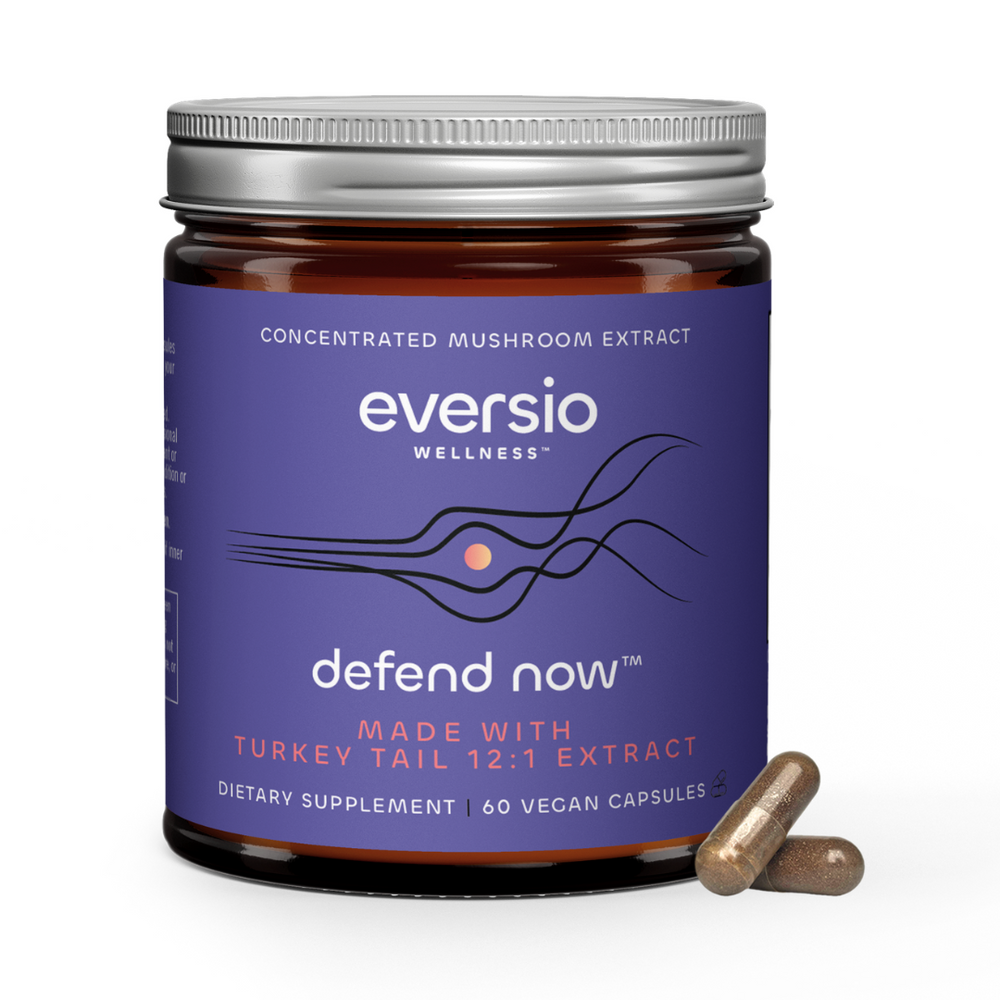
Adding Turkey Tail mushroom to your daily wellness routine isn't just a trend—it's a research-backed way to support both your gut microbiome and immune function. The real magic happens with consistent use, allowing those beneficial compounds to gradually influence your gut bacteria and strengthen your immune defenses over time.
When I first started exploring functional mushrooms for my own health journey, I quickly learned that quality makes all the difference. Not all Turkey Tail supplements deliver the same benefits, with effectiveness varying widely based on several key factors:
Mushroom part used - The fruiting body (the actual mushroom cap and stem) typically contains higher concentrations of beneficial compounds compared to mycelium (the root-like structure).
Growing conditions - Mushrooms grown in their natural environment develop a fuller spectrum of beneficial compounds.
Extraction methods - Proper extraction is crucial for making the beneficial compounds bioavailable to your body.
Quality standards - Third-party testing ensures you're getting what's promised on the label.
At Eversio Wellness, we prioritize using only organic, whole fruiting bodies of Turkey Tail mushrooms. We process them through dual extraction methods to ensure you get the full spectrum of both water-soluble and fat-soluble compounds—something many supplements miss.
Research published in BMC Complementary Medicine and Therapies found that both the fruiting body and mycelium of Turkey Tail offer immune benefits, but they work through different mechanisms. This highlights why proper extraction matters so much for capturing Turkey Tail's complete benefits.
As one nutrition expert notes, "Eating probiotics needs to be a regular thing," and the same applies to beneficial mushrooms. Consistency is truly the key to experiencing Turkey Tail's gut-supporting benefits.
Finding Quality Turkey Tail Supplements
The market is flooded with mushroom supplements, but their quality, potency, and effectiveness vary dramatically. When I'm helping clients choose a Turkey Tail supplement, I recommend focusing on these essential factors:
Whole fruiting body rather than mycelium on grain. The actual mushroom contains higher concentrations of beta-glucans and other beneficial compounds than mycelium grown on rice or other substrates. Look for products that specifically state they use fruiting bodies.
Dual extraction methods capture the full spectrum of compounds. Simple hot water extracts miss the fat-soluble triterpenes, while non-extracted mushroom powders may pass through your system without releasing their beneficial compounds.
Beta-glucan content is a key indicator of potency. Quality supplements will specify their beta-glucan percentage—look for products that list the actual percentage (typically 30% or higher), not just polysaccharides which can include inactive starch fillers.
USDA Organic certification ensures your mushrooms were grown without synthetic pesticides, fertilizers, or other potentially harmful chemicals—especially important for fungi, which readily absorb substances from their growing environment.
Third-party testing provides assurance that what's on the label is actually in the bottle. Reputable manufacturers have their products tested by independent laboratories for potency, purity, and safety.
At Eversio Wellness, our Defend Now - Organic Turkey Tail 12:1 Extract Capsules are crafted using USDA Organic Certified Turkey Tail mushroom fruiting bodies, dual-extracted for maximum bioavailability, and standardized to contain over 30% beta-glucans.
Our Turkey Tail mushrooms are grown Dì Dào—in their spiritual and native homeland with the preferred environment, atmospheric energy, pressure, and altitude required to thrive and deliver their intended spiritual energy and potency to your body.
Complementary Approaches for Comprehensive Gut Support
While Turkey Tail offers remarkable benefits for gut and immune health, I've found that a holistic approach yields the best results. Consider these complementary strategies to maximize your gut health journey:
Combine functional mushrooms for synergistic benefits. Different medicinal mushrooms work through complementary pathways to support gut and immune health. Consider pairing Turkey Tail with Reishi for its stress-reducing adaptogenic effects, Lion's Mane to support the gut-brain axis, Chaga for powerful antioxidant protection, or Shiitake for additional prebiotic support.
Accept prebiotic-rich foods to nourish your beneficial bacteria. These work hand-in-hand with Turkey Tail's prebiotic effects. Focus on diverse fiber sources from colorful vegetables, fruits, legumes, and whole grains—the greater the variety, the better for your microbiome diversity.
Include fermented foods in your diet to provide beneficial bacteria that work synergistically with Turkey Tail. Yogurt with live cultures, kefir, sauerkraut, kimchi, and other traditionally fermented foods make excellent additions to your gut health routine.
Add anti-inflammatory herbs and spices like turmeric, ginger, cinnamon, and rosemary to support gut health alongside Turkey Tail. These culinary additions can help reduce gut inflammation and support overall digestive function.
Stay properly hydrated throughout the day to support the mucus layer in your intestines, which helps beneficial bacteria thrive. Plain water is best, but herbal teas can also contribute to your daily fluid intake.
Practice regular stress management, as chronic stress can undermine gut health even with optimal supplementation. Simple practices like deep breathing, gentle movement, or a short daily meditation can significantly improve the benefits of your gut health regimen.
Supporting your gut health isn't a quick fix—it's a journey that requires patience and consistency. By integrating Turkey Tail and these complementary approaches into your daily routine, you're making a powerful investment in your long-term health and wellbeing.
Frequently Asked Questions about Turkey Tail and Gut Health
How long does it take to see improvements in gut health when taking Turkey Tail supplements?
The journey to better gut health with Turkey Tail supplements is personal and varies widely from person to person. Your starting point, current diet, lifestyle habits, and the quality of your supplement all play important roles in determining your timeline for results.
Many people report noticing subtle positive changes within 2-4 weeks of consistent use. These early improvements often include better digestion, increased energy levels, and fewer minor immune challenges like seasonal sniffles. However, the more significant and lasting changes to your gut microbiome typically require 2-3 months of daily supplementation.
This gradual timeline makes perfect sense when you consider how healthy gut bacteria develop and thrive. The beneficial compounds in Turkey Tail work cumulatively, gradually nurturing your microbiome and supporting your immune function over time rather than providing an overnight fix.
For the best results, consistency is key. Taking your Turkey Tail supplement daily for at least 8-12 weeks gives your body ample time to respond to its beneficial properties and allows you to properly evaluate its impact on your overall gut health.
Are there any side effects or interactions to be aware of when taking Turkey Tail for gut health?
Turkey Tail mushroom has a long and impressive safety record, with centuries of traditional use and numerous modern clinical applications confirming its generally excellent tolerability. However, as with any natural supplement, there are some important considerations to keep in mind.
When first introducing Turkey Tail to your routine, some people experience mild digestive adjustment symptoms such as temporary bloating, gas, or changes in bowel movements. These effects typically subside within a few days as your healthy gut bacteria adapt to the new prebiotic fibers. Starting with a lower dose and gradually increasing it can help minimize these initial adjustments.
While rare, allergic reactions to mushrooms can occur. If you notice itching, rash, swelling, or breathing difficulties after taking Turkey Tail, stop using it immediately and seek medical attention.
Turkey Tail may interact with certain medications, particularly:
Immunosuppressants - Since Turkey Tail stimulates immune function, it could potentially counteract medications designed to suppress immunity.
Blood thinners - Some mushroom compounds have mild anticoagulant effects that might improve the action of blood-thinning medications.
Diabetes medications - Mushrooms can influence blood sugar levels, potentially affecting the dosing needs for diabetes medications.
If you have an autoimmune condition, consult with a healthcare provider before starting Turkey Tail supplements. While Turkey Tail's immune-modulating effects are typically balancing rather than stimulating, individual responses can vary.
Due to limited research on Turkey Tail during pregnancy and breastfeeding, women in these special life stages should speak with their healthcare provider before using these supplements.
As with any wellness addition, it's always wise to check with your healthcare provider before beginning Turkey Tail supplementation, especially if you have existing health conditions or take medications regularly.
Can Turkey Tail supplements be taken alongside probiotics or other gut health supplements?
Yes! Turkey Tail supplements generally work wonderfully alongside probiotics and other gut health supplements, and this combination often creates synergistic benefits for your microbiome.
Think of Turkey Tail as providing the perfect environment for beneficial bacteria to thrive. Its prebiotic fibers nourish the good bacteria supplied by your probiotic supplements, potentially enhancing their effectiveness. This complementary relationship is sometimes called a synbiotic approach—pairing prebiotics and probiotics for optimal gut health.
When combining multiple supplements for gut health, follow these helpful guidelines:
Introduce new supplements gradually, adding one at a time and allowing your body to adjust before introducing another. This patient approach helps you identify which supplements are providing specific benefits and ensures you don't overwhelm your system.
Pay close attention to how your body responds to each combination, adjusting as needed based on your personal experience. Your body's feedback is invaluable in customizing your gut health routine.
Some practitioners recommend taking probiotics and mushroom supplements at different times of day to optimize absorption, though research on ideal timing is still limited. Morning with breakfast for mushrooms and evening before bed for probiotics is one common approach.
Other supplements that often complement Turkey Tail for comprehensive gut support include:
L-glutamine - This amino acid helps strengthen and repair the intestinal lining.
Zinc carnosine - Known for its ability to support gut barrier integrity.
Digestive enzymes - These can improve nutrient absorption and ease digestion.
Other medicinal mushrooms - Reishi, Lion's Mane, and Chaga offer complementary benefits for overall wellness.
Harness the Power of Mushrooms—The Future is Fungi, and It Starts with You!
The intricate dance between your gut microbiome and immune system represents one of the most fascinating frontiers in modern health science. As researchers continue to unveil the profound ways that healthy gut bacteria influence our overall wellness, ancient wisdom about medicinal mushrooms like Turkey Tail is finding validation in scientific laboratories around the world.
This gut-immune connection isn't just an interesting scientific concept—it's a powerful framework for understanding and supporting your health in a truly holistic way. When you nurture your gut microbiome through thoughtful diet choices, mindful lifestyle practices, and targeted supplementation with functional mushrooms, you're investing in the very foundation of your wellbeing.
Turkey Tail mushroom stands out as a remarkable ally on this wellness journey. Its unique composition of beta-glucans, polysaccharopeptides, and other bioactive compounds offers dual support for both gut health and immune function—a synergy that traditional healers have recognized for centuries and modern science continues to validate through rigorous research.
At Eversio Wellness, we're deeply committed to using nature's most effective mushrooms through science-backed formulations that support your body's innate wisdom. Our organic, dual-extracted mushroom supplements are carefully crafted to deliver the full spectrum of beneficial compounds in their most bioavailable form, honoring both tradition and innovation.
Take the first step toward using the power of mushrooms for your gut and immune health with Eversio Wellness' premium Turkey Tail extracts. Our mushrooms are grown Dì Dào—in their spiritual and native homeland with the preferred environment, atmospheric energy, pressure, and altitude required to thrive and deliver their intended spiritual energy and potency to your body.
Experience the difference that quality, science, and tradition can make in your wellness journey as you accept the powerful connection between healthy gut bacteria and immune resilience—a connection that Turkey Tail mushroom helps to nurture and strengthen day after day.
Frequently Asked Questions about Turkey Tail and Gut Health
How long does it take to see improvements in gut health when taking Turkey Tail supplements?
When it comes to seeing results from Turkey Tail supplements, patience truly is key. The timeline varies considerably from person to person, depending on your current gut health, dietary habits, lifestyle factors, and the quality of the supplement you're using.
Many people report noticing subtle improvements in digestion, energy levels, and immune function within the first 2-4 weeks of consistent use. You might find that bloating decreases, bowel movements become more regular, or that you're catching fewer colds. These early signs are encouraging, but they're just the beginning.
More significant changes to your gut microbiome typically take 2-3 months of regular supplementation. This is because rebuilding a healthy gut ecosystem is a gradual process - your beneficial bacteria need time to multiply and establish themselves.
Research consistently shows that the beneficial effects of medicinal mushrooms like Turkey Tail tend to be cumulative, building up over time with consistent use. This is why many experts, including mycologists and integrative health practitioners, recommend taking Turkey Tail supplements daily for at least 8-12 weeks to properly evaluate their full impact on your gut health.
Are there any side effects or interactions to be aware of when taking Turkey Tail for gut health?
Turkey Tail mushroom has an impressive safety profile with a long history of traditional use and modern clinical applications. Most people tolerate it extremely well, but there are some considerations worth knowing about:
When first starting Turkey Tail supplements, some people experience mild digestive adjustment symptoms such as temporary bloating, gas, or changes in bowel movements. This is actually quite normal and often a sign that your gut microbiome is beginning to shift. These effects typically resolve within a week or two as your body adjusts, and can often be minimized by starting with a lower dose and gradually increasing.
Although rare, allergic reactions to mushrooms are possible. If you experience itching, rash, swelling, or difficulty breathing after taking Turkey Tail, discontinue use immediately and seek medical attention.
Turkey Tail may interact with certain medications, particularly immunosuppressants (since Turkey Tail stimulates immune function), blood thinners (as some mushroom compounds may have mild anticoagulant effects), and diabetes medications (as mushrooms may affect blood sugar levels). Always consult with your healthcare provider before combining Turkey Tail with any prescription medications.
People with autoimmune conditions should approach Turkey Tail with caution and professional guidance. While its immune-modulating effects are beneficial for many, they could potentially influence autoimmune conditions in unpredictable ways.
Due to limited research, pregnant or breastfeeding women should consult with a knowledgeable healthcare provider before using Turkey Tail supplements.
As with any supplement that affects your body's core systems, it's always wise to check with your healthcare provider before starting Turkey Tail, especially if you have existing health conditions or take medications.
Can Turkey Tail supplements be taken alongside probiotics or other gut health supplements?
Yes, Turkey Tail supplements can generally be taken alongside probiotics and other gut health supplements—and this combination may actually offer synergistic benefits for your microbiome.
Turkey Tail contains prebiotic fibers that can help nourish the beneficial bacteria provided by probiotic supplements, potentially enhancing their effectiveness. This relationship between prebiotics and probiotics is sometimes referred to as a synbiotic approach—combining both elements for optimal gut health.
When combining supplements, here are some practical tips:
Start gradually by introducing new supplements one at a time, allowing your body at least a week to adjust before adding another. This measured approach helps you identify which supplement is causing any effects you might experience.
Pay close attention to how your body responds to the combination. Everyone's microbiome is unique, and what works wonderfully for one person might not be ideal for another.
Some practitioners recommend taking probiotics and mushroom supplements at different times of day to optimize absorption and effects, though research on optimal timing is still limited. Many find taking probiotics on an empty stomach and mushroom supplements with food works well.
Other supplements that often complement Turkey Tail for gut health include L-glutamine (an amino acid that supports intestinal barrier function), zinc carnosine (which may help strengthen the gut lining), digestive enzymes (to support optimal digestion and nutrient absorption), and other medicinal mushrooms like Reishi, Lion's Mane, and Chaga, each offering complementary benefits.


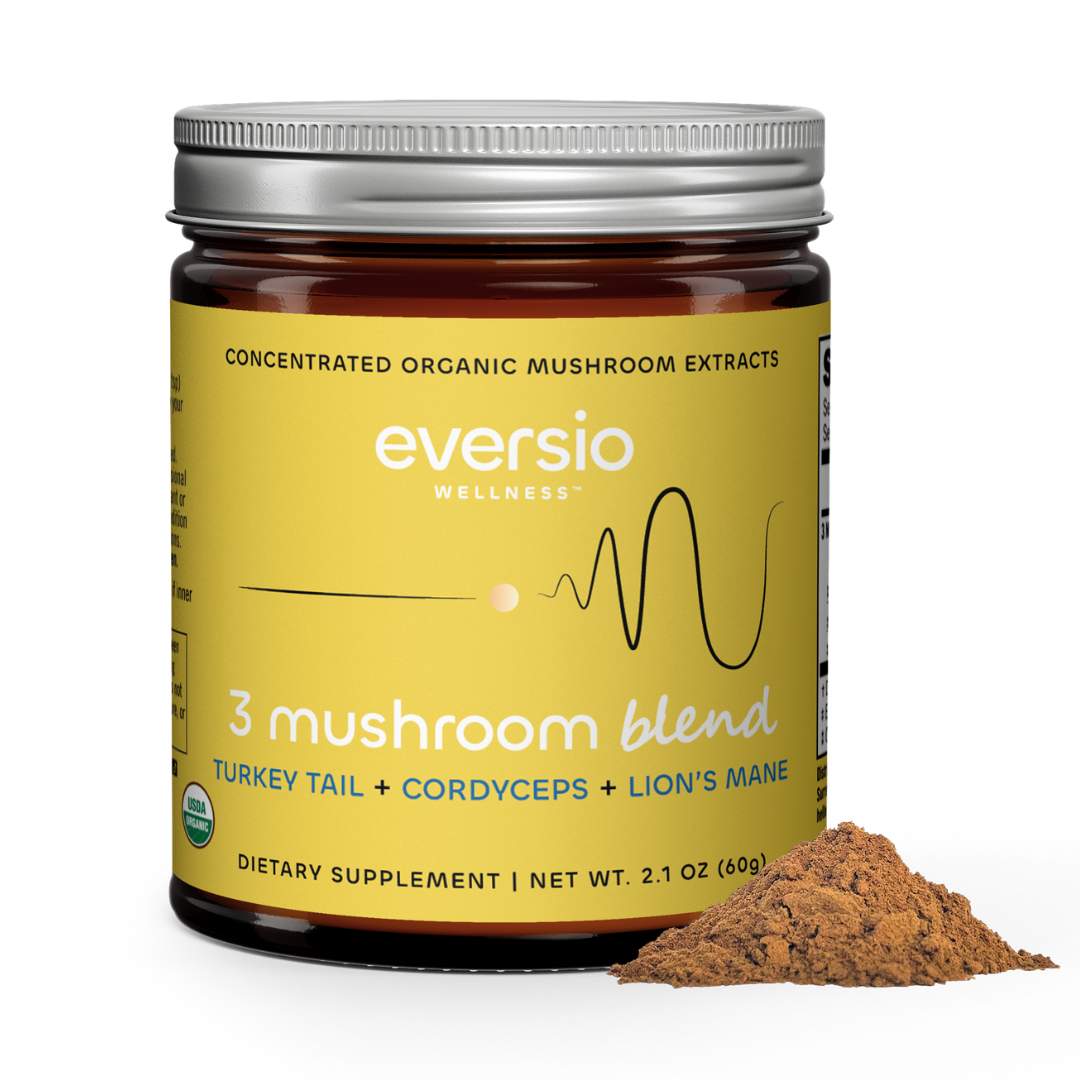
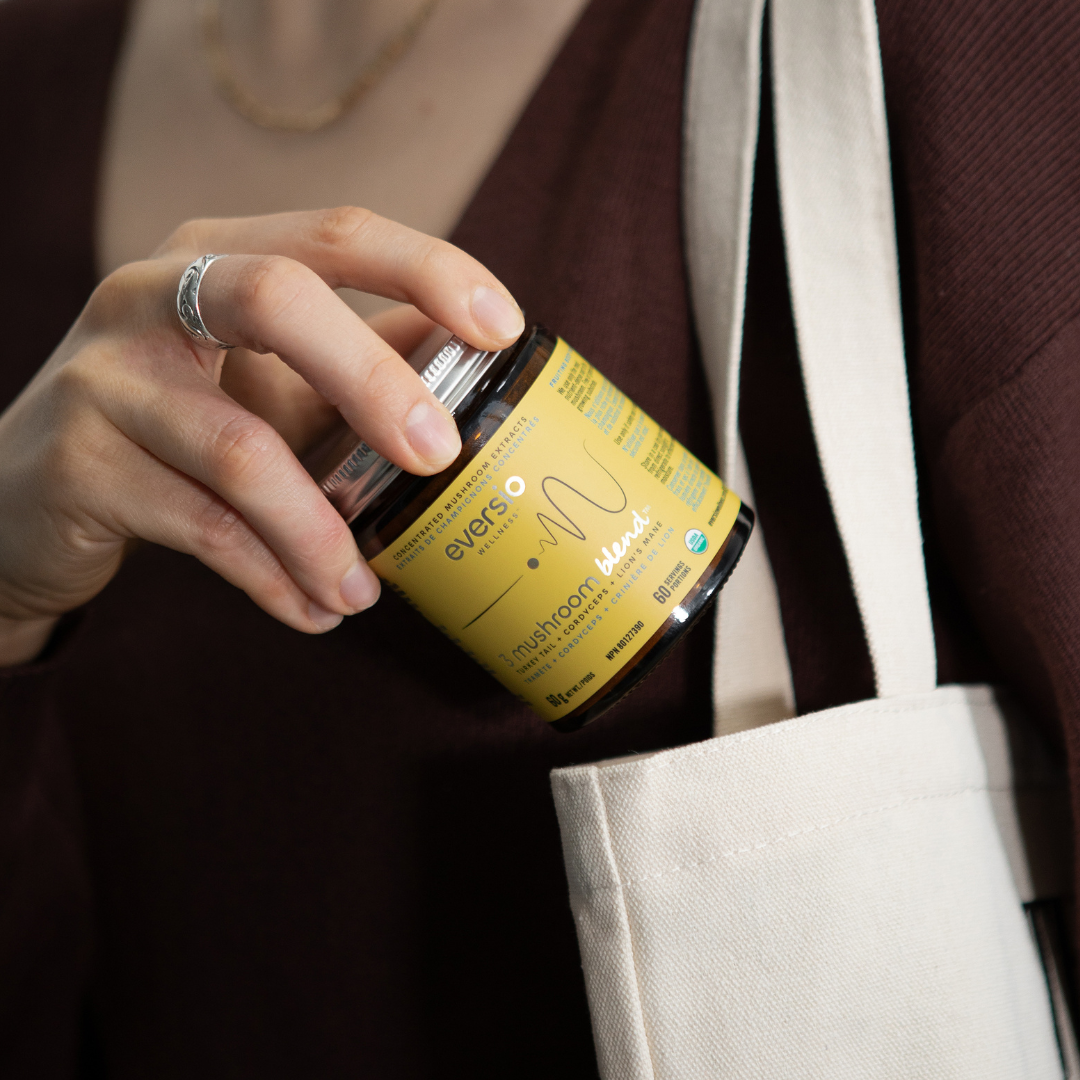

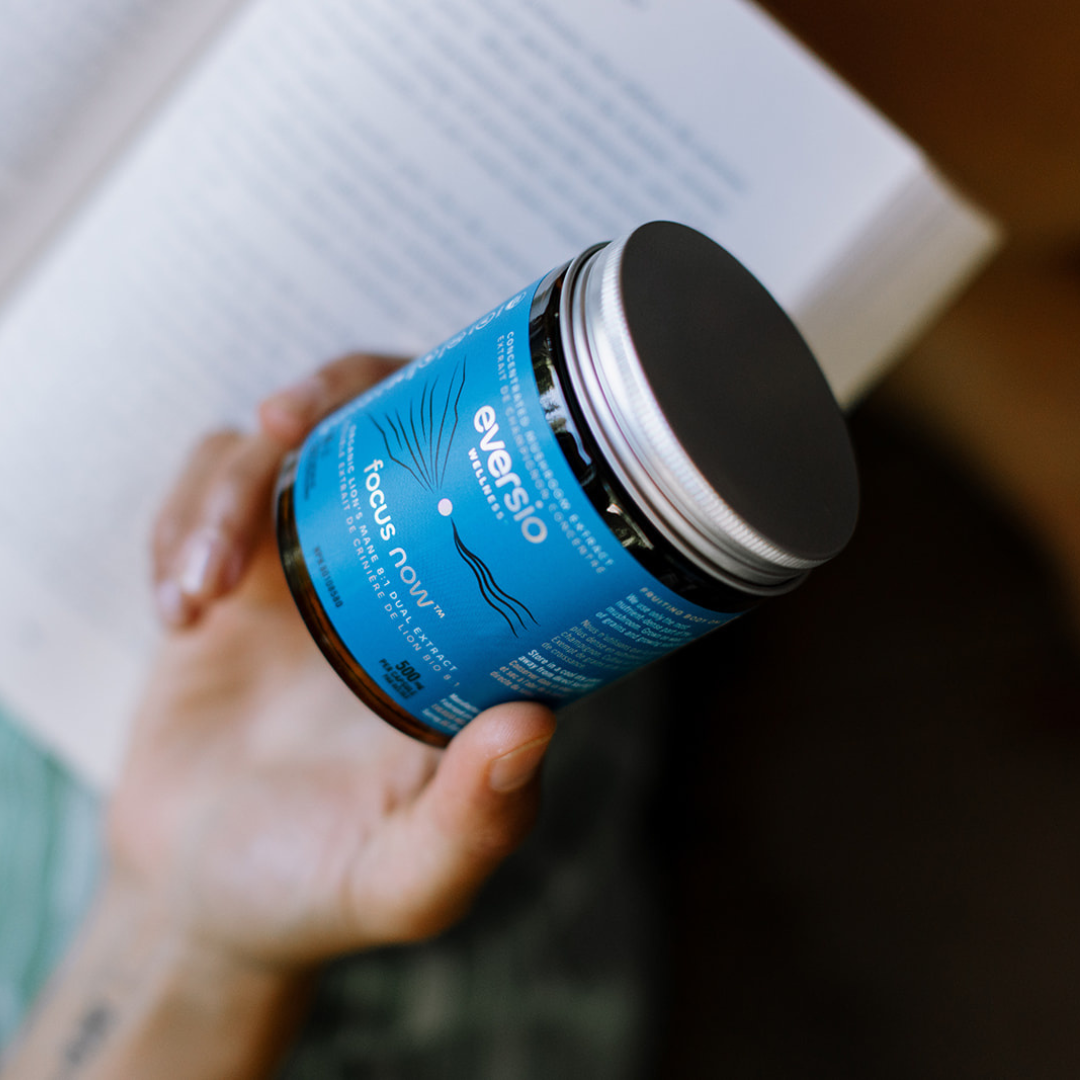
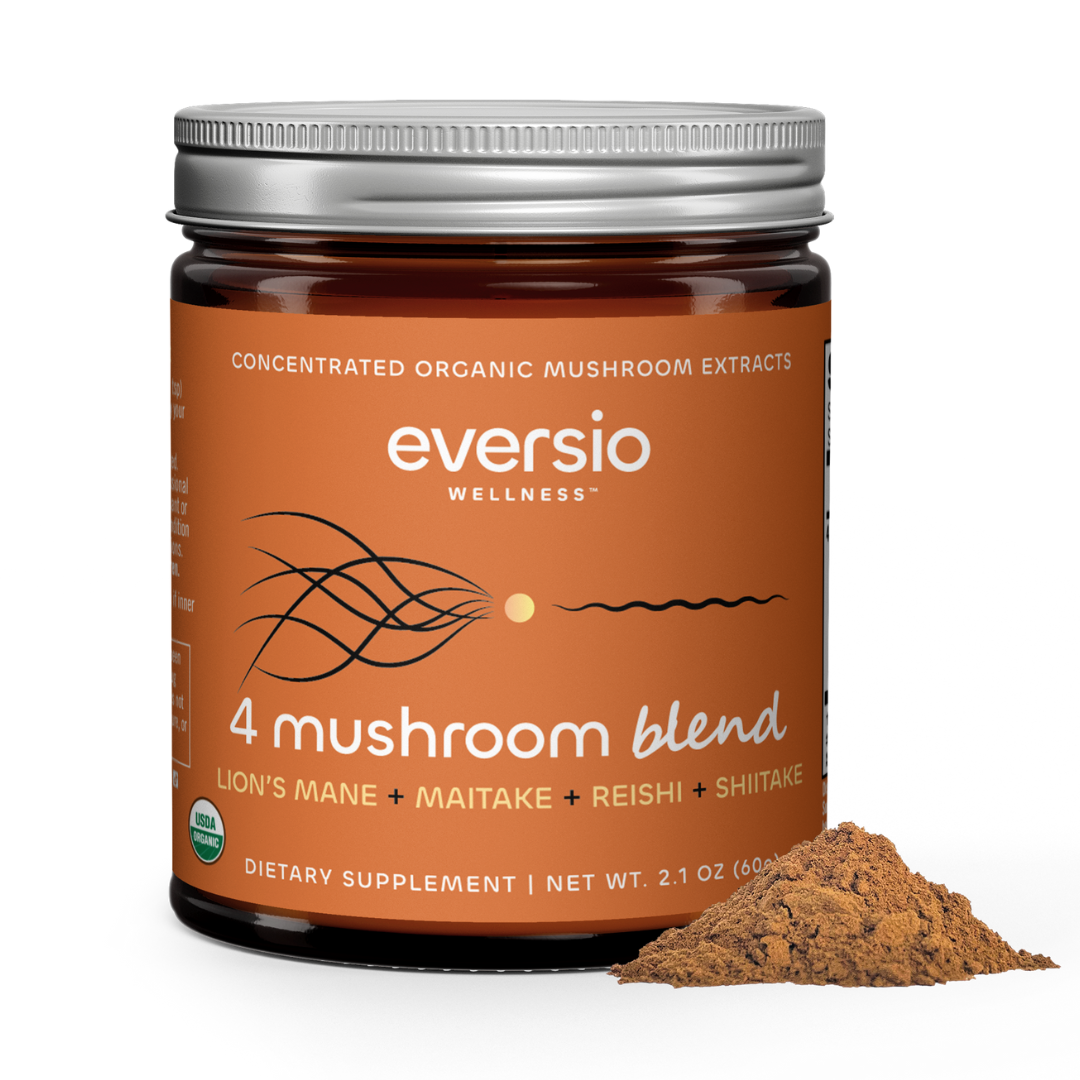
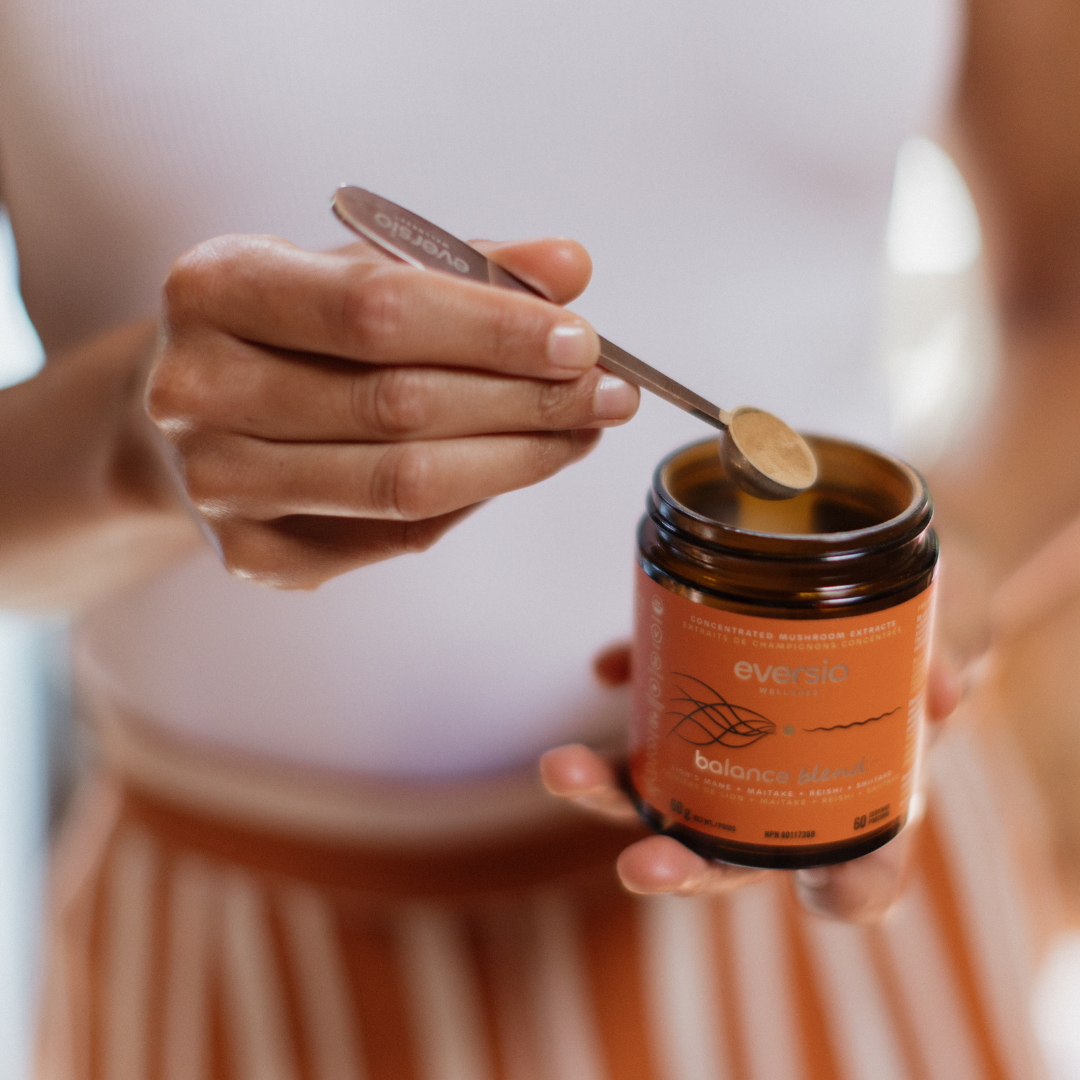
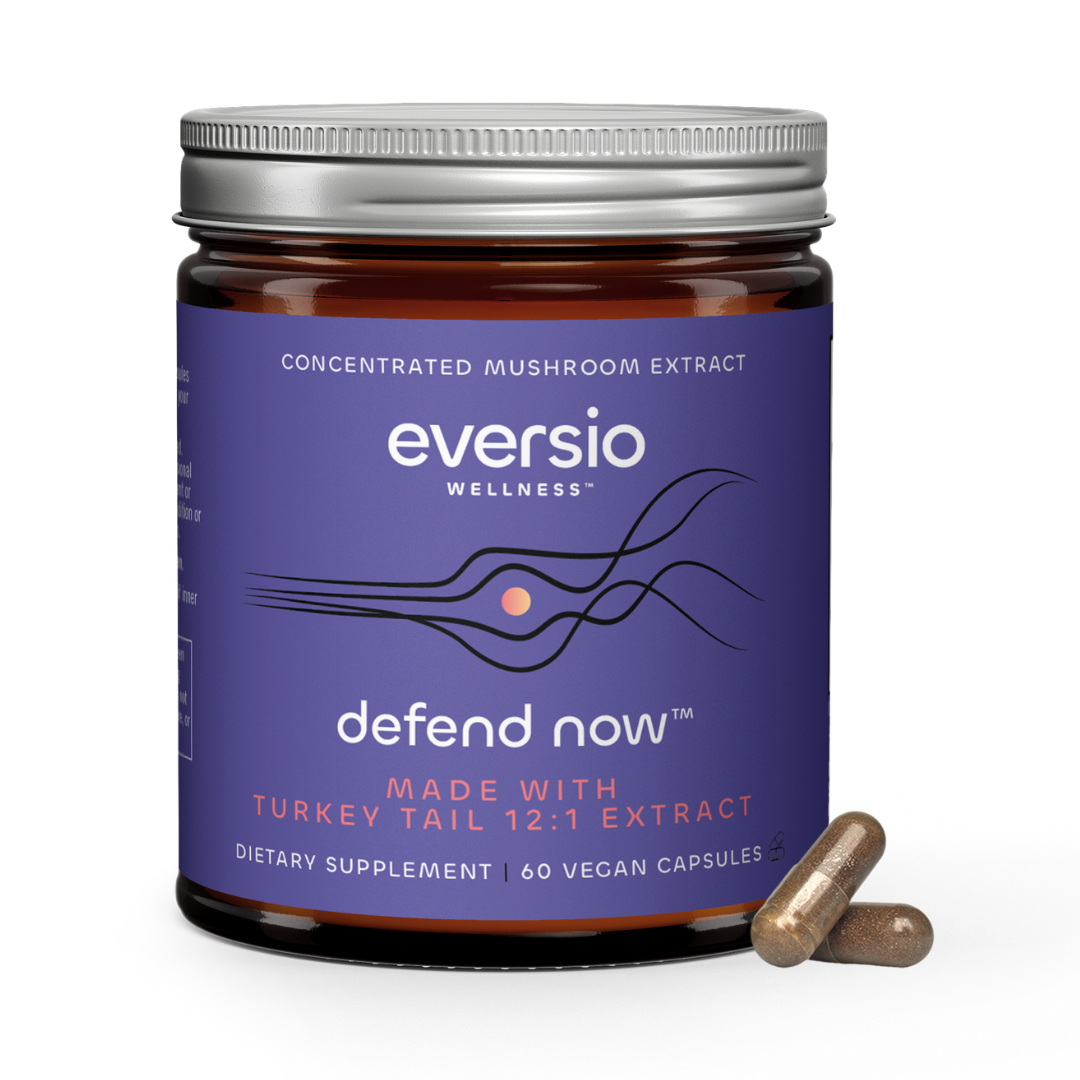
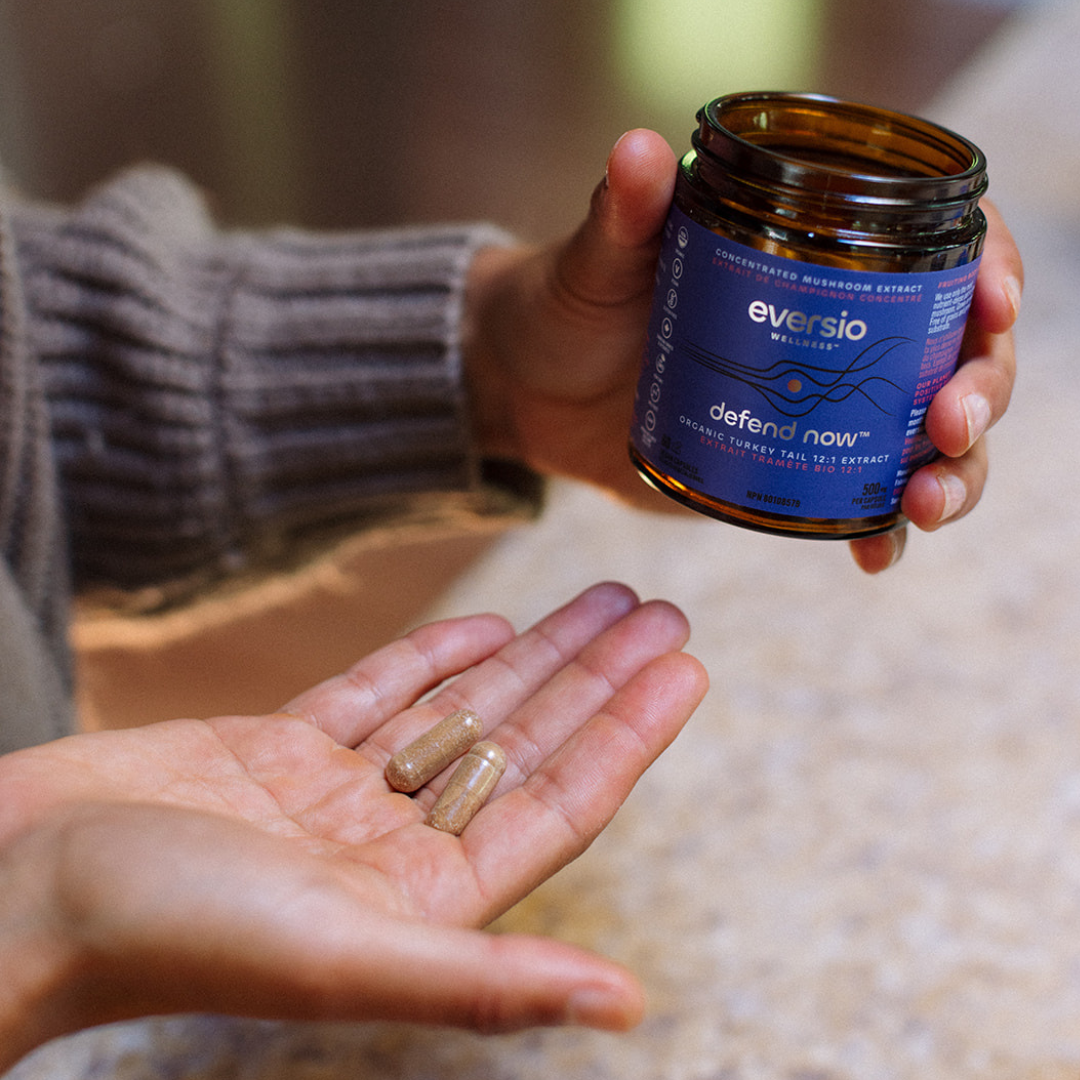
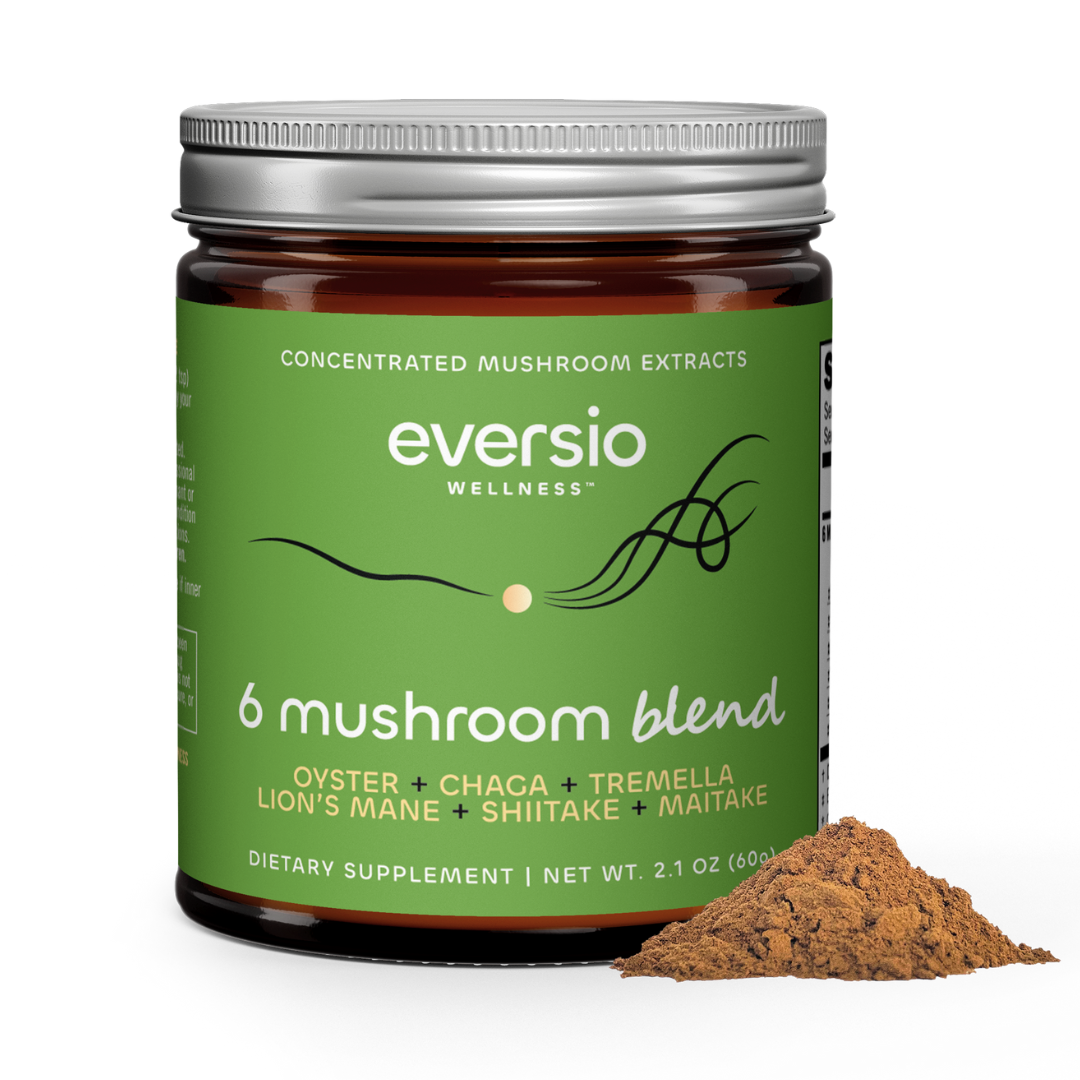
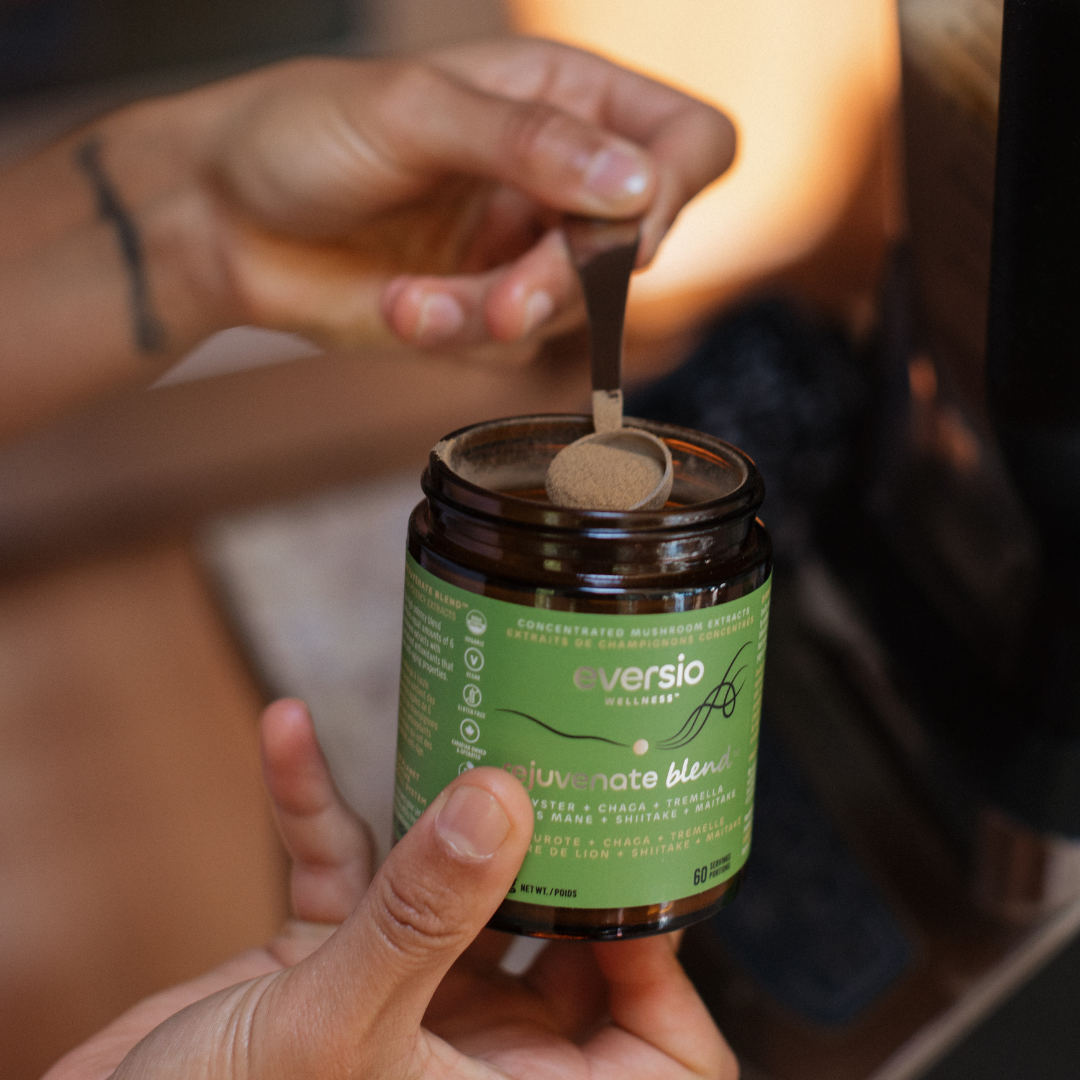
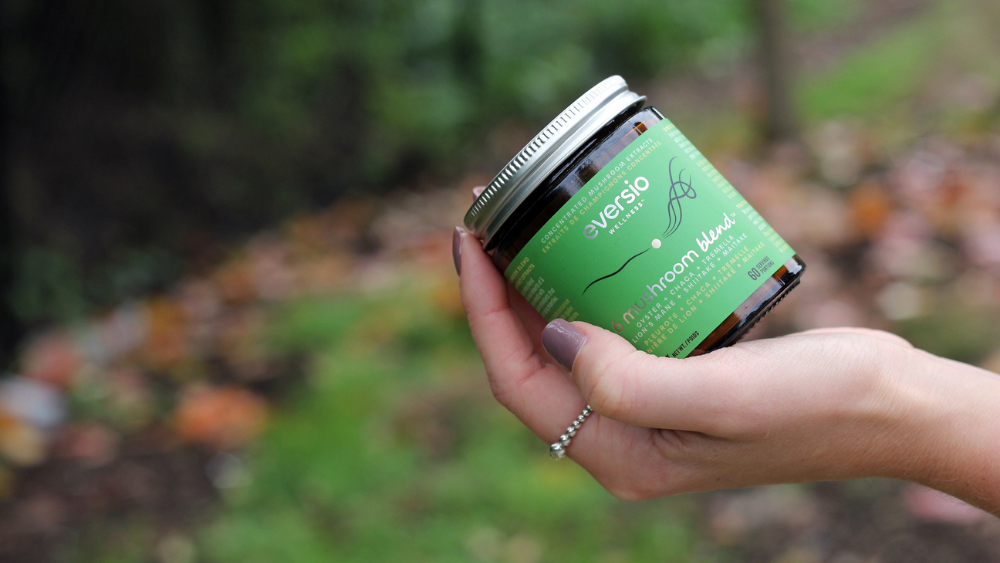
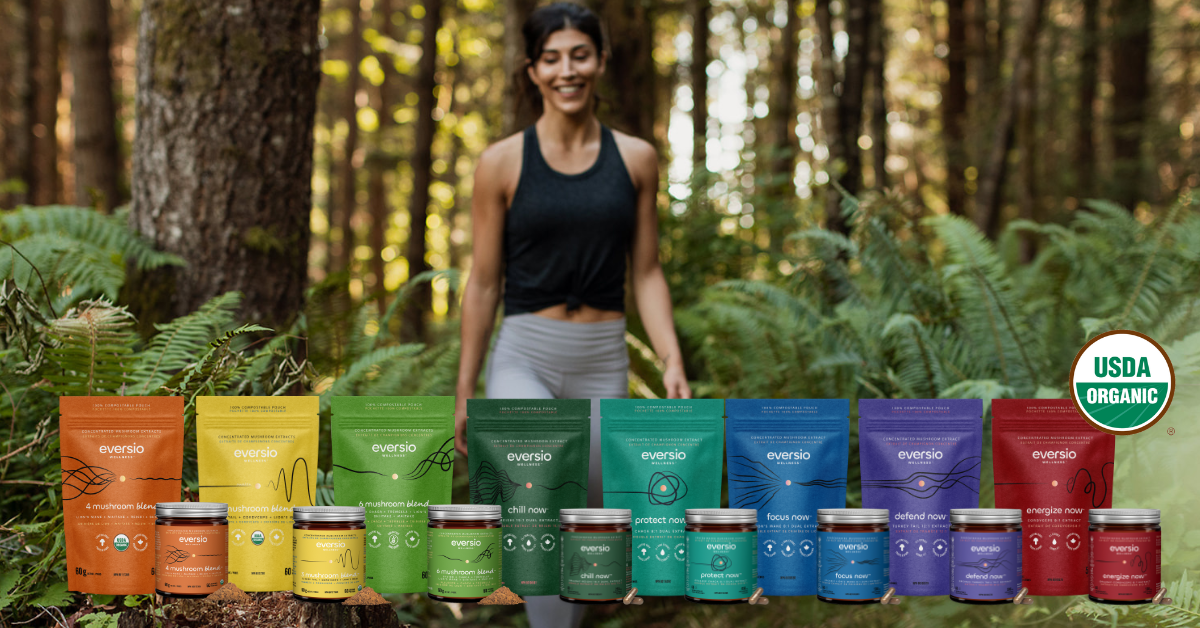






Leave a comment
This site is protected by hCaptcha and the hCaptcha Privacy Policy and Terms of Service apply.